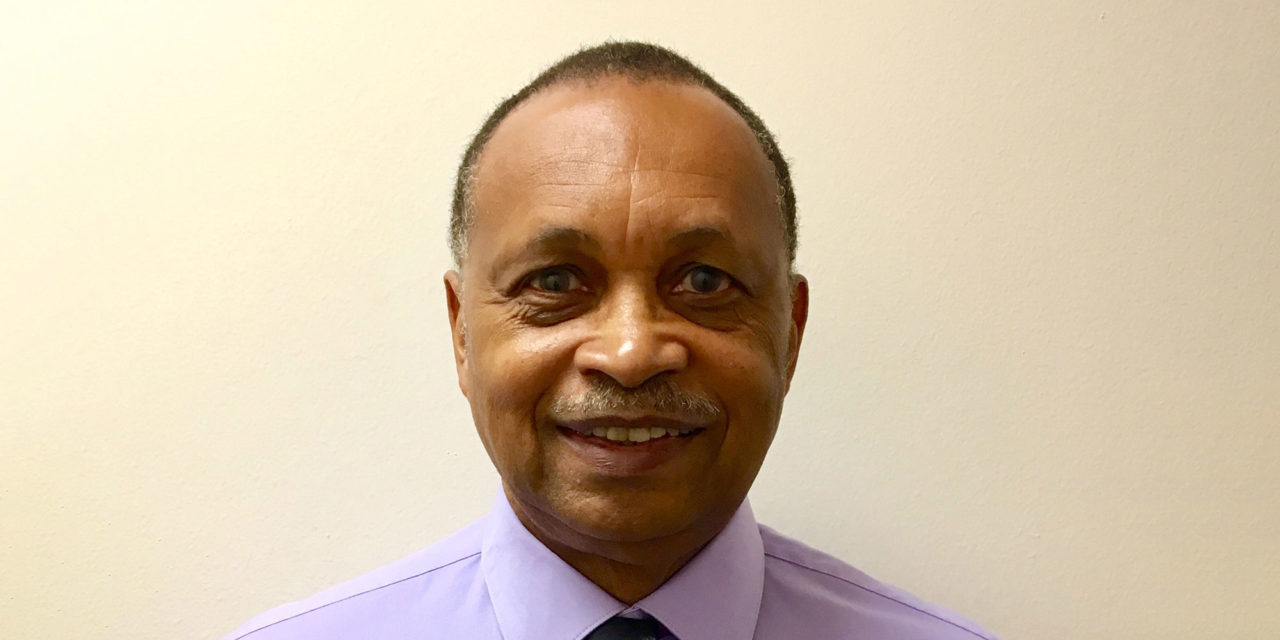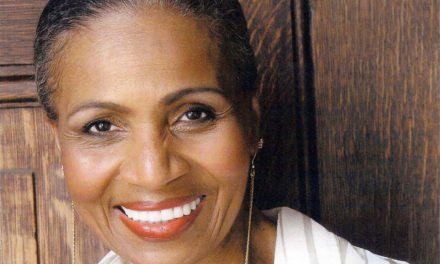A Conversation with Dr. Charles Ridley, Licensed Psychologist
The American public, including Christian communities rarely escape the overwhelming presence of mass media (television, radio, and print). Now with the new media formats (social media), our minds are bombarded with messages about violence, suffering, tragedy, and pain that might be self-inflicted or caused by others. No matter the source of news, Christians must deal with external events that cause internal pain and/or physiological imbalances that cause internal pain. In either case, life can hurt and it will get you down. How do you cope with the inevitable treacherous road of life? Who is there in your most difficult moment(s)?
Within the last month, the American public and the Christian community was reminded that everything can appear to be “fine on the outside” and “unstable on the inside”. A Chicago Tribune headline read, Anthony Bourdain suicide a reminder of celebrities’ distance from us. Among Christian and non-Christian families, millions of people feel isolated, abandoned, unloved, betrayed and experience a host of other emotions or feelings. Despite what the world seems to use as a measure of success, both Anthony Bourdain and Kate Spade ended their lives, leaving many of us to ponder “what could cause such pain that you take your own life.” High-profile news stories seem to bring us to a place where we stop for a moment and ponder the troubling questions of life:
What causes a person to go on a shooting spree that kills innocent people?
What causes a person to be depressed? What causes a person to give up all hope?
Why do I go to church and still feel lost?
How can I help my sister believe that God has a purpose for her life?
Why did God take away my spouse, mother, sibling, friend, etc?
What am I supposed to do after my son, daughter, friend, or other loved one was killed?
After Hurricane Katrina in 2005, I remember seeing a poster that stated, “Emotional Trauma Can Manifest Itself as the Blues” — Project Blues.
Everyone experiences emotional trauma at various points along the journey of Life yet, mental health remains an uncomfortable and often sensitive topic even among Christians. Spiritual health or spiritual well-being seems to be a more palatable conversation. There is a quiet stigma, an uneasiness about the subject of suicide, depression, mental illness, seeking therapy, and how does the Christian deal with pain. Are pastoral counseling services adequate in meeting the needs of all those entering the worship centers? Many Christians may even mask the pain by displaying spiritual maturity. Is spiritual maturity a vaccine to counter depression? How does it work for non-believers?
There are so many questions about mental health or mental well-being that it is difficult to get all the answers in one place. In fact, mental health professionals may not have the answers.
HimPower is exploring this sensitive topic and hopes to provide the readership with contemplative answers to some frequently asked questions about mental health or mental well-being. Encouraging One Another presents an interview with Dr. Charles Ridley, licensed psychologist as Part I of a series on mental health and mental well-being.
Question: The American public and many Christians are living with and/or affected by psychological, emotional, and spiritual health issues. I believe that many Christians try to make sense of depression, anxiety, and fears that challenge the human life. What is depression and how should the Christian community respond to this pervasive human experience?
Dr. Ridley: Before I respond directly to your question, I should say that anxiety actually is more pervasive than depression. Everyone has first-hand experiences of worry, fear, and troublesome thoughts. Depression is a mood of sadness that can range from mild melancholy to out-right hopelessness. There are a number of characteristics of severe depression such as loss of pleasure and interest in everyday activities, appetite and sleep disturbances, and loss of energy. The Christian community, by definition, is a place of healing. We should send a clear message that people are welcomed regardless of their emotional struggles. We should also create networks where we support our people to get professional help that is beyond the capacity of the community.
Question: When challenging life events happen in the global community, churches, neighborhoods, and within our families, there are many terms that can be confusing to non-mental health professionals and/or the Christian community. How do you distinguish between the terms psychological, emotional, mental and spiritual health?
Dr. Ridley: This is messy. Professionals often use these terms interchangeably. It would be futile for me to distinguish them because another professional may put a different spin on the terms. However, in my opinion, you say it best when you describe health as existing on a continuum. For me, real health takes on a holistic perspective that includes physical, emotional, spiritual, and social well-being.
Question: What is the relationship between spiritual health and the other three terms? Does spiritual well-being inform or influence psychological and/or emotional health or vice-versa?
Dr. Ridley: My perspective stems from the premise of created order. God created an orderly world governed by natural laws that he put into place. These laws pertain to all aspects of nature and serve a purpose that benefits us: promotion of order and prevention of disorder and chaos. Imagine the world without gravity. The problem is when we violate the laws. Consider a man who jumps off the 10th floor of a building. The same law that results in his inevitable plunge to the ground prevents objects and people from continually crashing into each other. What a chaotic world? God has the best idea in his design–orderliness. However, there are various ways we can be in violation of created order. There may be in a biochemical imbalance for which someone is unaware, and this may require primarily medical intervention. The problem may be social imbalance in which someone oversteps relationship boundaries. This may require primarily psychological intervention.
Question: If a person wants to seek help or support for dealing with “life situations” where does one begin? Do I look in the yellow pages or internet for a psychologist or psychiatrist? What is the difference between a psychologist and a psychiatrist”?
Dr. Ridley: Family members and new acquaintances, sometimes refer to me as a psychiatrist. I may or may not correct them. I think their comments indicate how people confuse the two professions. They are related, but there are distinctions. The graduate training of psychologists is entirely in psychology. Psychiatrists are trained physicians, who then specialize in psychiatry. Therefore, the typical psychologist has more in-depth training than do psychiatrists in mental health treatment. On the other hand, psychiatrists have prescription authority. They can prescribe medications as part of the treatment. Currently, six states allow psychologists prescription authority, but it requires additional training and supervision.
Question: Are you suggesting that psychiatrists lack in-depth training in mental health treatment?
Dr. Ridley: No. There are different emphases. Because of their medical training, psychiatrists can focus more on the interaction of mind and body. For instance, ten percent of depression is associated with a thyroid imbalance. Psychiatrists can diagnose and treat the imbalance medically. Psychologists can refer clients to physicians if they wish to rule out a thyroid condition. On the other hand, because of their training, psychologists typically use a wider range of therapeutic techniques and have a deeper knowledge of the process of therapeutic change. I train my doctoral students to be proficient in all of the major therapeutic orientations which gives them options to treat their clients.
Question: Exactly what is meant by the term therapy and more specifically, psychotherapy?
Dr. Ridley: The terms therapy, psychotherapy, and even psychological counseling mean essentially the same thing. While some professionals make a distinction between these terms, the purpose of this professional service is to help people overcome problems that keep them in an emotional rut and live more effectively. Living more effectively means handling their painful emotions, making better lifestyle decisions, and managing their personal problems. As you would say, Dr. Shaw, they should make better decisions within the choices they have.
Question: If a person has never sought the professional services of a psychologist or other mental health professional, what should he/she expect in a first-time encounter? In other words, how can Christians encourage each other to be comfortable with seeking mental health services?
Dr. Ridley: The typical first encounter is an intake interview. Here the professional tries to get an overview of the clients’ background, an understanding of the presenting complaints that led them to therapy, as well as provide an explanation of the therapy process and ethical and legal requirements.
Question: How long does therapy or counseling continue after the first session?
Dr. Ridley: The length of therapy depends on the needs of clients. One size does not fit all. Some clients require several sessions. Others can be in therapy months or years. I have a client right now whose wife committed suicide last year. He is experiencing what we technically call complicated grief. You would be surprised about the many issues the suicide congers up in his life. Our sessions are intense. He has been my client for months, and I anticipate seeing him for many months to come.
Question: In your opinion, what perceptions do Christians have about mental health and/or mental well-being that may prevent them from seeking mental health, emotional, or psychological support?
Dr. Ridley: I supervise psychology students in our community clinic who see 40-50 clients weekly. I also see several clients weekly in a private practice. These experiences provide a context for my answer to your question. Most people come to therapy in order to feel better. They look to the therapist as professional aspirins or anesthesia to — “get me out of this pain.” In reality, people should come to therapy to collaboratively replace self-defeating behavior patterns with behaviors that lead to better life functioning outcomes. That is a different agenda from wanting therapy to be a quick fix. Of course, we want people to move beyond feelings of anxiety, depression, and distress. However, almost nobody comes for an emotional checkup—just to see if they are doing okay emotionally. We take our cars to the auto mechanic for periodic checkups. Sometimes we even go to doctors for wellness examinations. However, the common approach people take signifies that mental health treatment is for people who are disturbed, over the edge, or severely imbalanced. The reality is that most people face situations whereby professional care can be beneficial. Research suggests that annually 25 percent of the populations should be in counseling or therapy.
Question: Many Christians know how to advocate for medical care and treatment. What does the Christian community need to know about the field of psychology when making self-help decisions and/or encouraging one another to get mental health support?
Dr. Ridley: There are philosophical differences between the various specialties within professional psychology. On a practical basis, the lines are blurred. For example, in most states, clinical psychologists, counseling psychologists, and school psychologists all are license-eligible as psychologists. However, most consumers only know that psychologists have the credentials to practice, and they do not really care about or understand the differences in psychologists’ training. In reality, regardless of their training, many psychologists treat a range of client problems.
Although I believe strongly that people should take responsibility for their behavior and lifestyle choices, I think the popular self-help literature is oversold. Certainly, the literature offers useful insights. My biggest concern is that it tends to oversimplify the complexity of the problems people face, such as with the 7-steps to emotional health. People then get discouraged when the seven steps fail to yield them the outcomes they anticipate.
Question: In many social and family environments, if a Christian admits to having difficulty coping with life, a well-meaning friend or loved one may steer the individual away from seeking mental health or counseling support. How can the Christian community help to change negative perceptions about seeking mental health services or support?
Dr. Ridley: The Christian community is on a slippery slope when it attributes all emotional problems directly to sin or lack of faith. Job’s three friends attributed the calamity that came into his life as evidence of personal sin. In the book of John, Jesus’ disciples attributed the blind man’s infirmity to personal sin. The Hebrews believed in prenatal sin, implicating either the man or his parents. In both the Old Testament and New Testament, these perceptions are actually misperceptions. Mental health problems have a number of causes, just as a stalled automobile requires the mechanic to look under the hood to determine the source of the problem. Similarly, leadership in the Christian community has a responsibility to teach the scripture with fidelity—there were other explanations for Job’s and the blind man’s condition that had nothing to do with their spirituality. When it comes to mental health, this means that (a) we must allow for multiple causes of our problems, such as biochemical imbalances or too many stressors and (b) therefore, use multiple treatments. Spiritual guidance should be among the treatments.
Question: Are there other mental health professionals that can support individuals, family, and communities with emotional or psychological support? If so, can you comment on how and where they are accessed?
Dr. Ridley: In addition to psychologists and psychiatrists, there are licensed professional counselors (LPCs), marriage and family therapists, and clinical social workers (LMSWs). All of these professionals provide mental health services. State licensing boards regulate these professions. Every state board has a public listing of their licensed professionals. In fact, in my field, professionals who have the terminal degree in psychology but do not have a license cannot represent themselves as psychologists. If you need mental health care and/or support for yourself, family member, or friend, I recommend the following steps:
- Do not ignore the need or respond passively
- Try to convince the person of the need for help
- Inquire in your social network (friends, family, acquaintances) about professional resources
- Seek support from your faith community
- Contact your primary care physician for guidance or a referral.
Question: A September 2017 Special Issue of the American Psychologist focused on the subject “Close Family Relationships and Health.” Could you give the Christian community your thoughts on the subject as it relates to emotional, psychological, and mental health?
Dr. Ridley: The family was the first institution ordained by God. This is clear in the first several chapters of Genesis. Healthy families also are the foundation of an orderly society. It is of interest that after Adam and Eve violated God’s law that psychological and behavioral problems appeared. They experienced shame and covered themselves. They experienced fear and engaged in avoidance behavior. Conflict emerged. Their oldest son became jealous and murdered their younger son. Now, in my opinion, it is a mistake to attribute every emotional problem directly to a sinful attitude or behavior, as I previously stated. However, all emotional disturbances are at least indirectly attributable to our human nature, which has the tainting of original sin. To circle back to your question, God’s plan is for us to submit to his authority for redemption and healing in our families.
Question: So, if a Christian prefers to be seen by a Christian mental health professional, how does one start the process or if you want to encourage a loved one to be seen by a Christian mental health professional, where does one start the process?
Dr. Ridley: A number of mental health providers advertise themselves as Christians. They tend to cluster in major urban areas. However, you can find them in smaller communities as well but may have to make more of an effort to find them. A good resource is Psychology Today on the internet. Look up Christian therapists.
Question: Can you share an example of an integrated theology and psychology message? One that might stimulate reflection, meditation, and equip Christians to encourage one another around issues related to mental health and mental well-being?
Dr. Ridley: The idea of the integration of theology and psychology is often misunderstood. There are a wide range of theological perspectives and psychological theories. Some are sound; others are more speculative. We should ask ourselves, what theological perspectives are we attempting to integrate with which psychological perspectives? I believe that biblical principles based on sound theology are compatible with sound theory and science in psychology. The purpose of this integration is to explain how we function in alignment God’s created order.
For instance, moderation is a biblical principle that is consistent with a proven psychological finding. It aligns with the principle of stress and performance. When our stressors are too many, too prolonged, or too intense, we exceed our natural limits, and our stress becomes distress. This goes against created order, and begin to have adverse physical and psychological reactions.
Question: How do you integrate Christian principles into counseling therapy?
Dr. Ridley: The key word in your question is “principles.” Principles are guides for behavior and evaluation. They are the basis for determining what is right or wrong. I integrate Christianity into therapy by helping clients consider the principles that should underlie their decisions and actions. I have clients who do not profess Christianity or are not active in a community of faith. Nevertheless, some of them appreciate the biblical perspective applied to their therapy.
Question: Could you give us an example of what a Christian mental health professional might say to someone who is struggling “when life hurts so much that nothing seems to ease the pain?
How can the Christian use his/her spiritual maturity to support and encourage another individual struggling with “life happens”? Are there things we should look for or notice in our interactions with another?
Dr. Ridley: The last thing a therapist should do is to trivialize the clients’ pain. The Bible has much to say about human pain and suffering. James 1: 2-4 is a good example. These verses lead us to consider the benefits of our troubles. In therapy, I try to help clients consider how that the circumstances in which they find themselves provides a new opportunity to become better persons and Christians and change their lives. Then of changing, not in absence of the pain but despite the pain.
Question: You have a book entitled, Unintentional Racism in Counseling Therapy. Can you tell a little about the major premises of the book and implications for both practitioners and clients/patients?
Dr. Ridley: Some minority consumers of mental health services have negative experiences as compared to many white consumers. They are more dissatisfied with the treatment, drop out earlier, get misdiagnoses more often, and therefore get the wrong treatment. A major premise of the book is that well-meaning professions nevertheless provide flawed treatment to minority clients. I contend they do not understand the consequences of their behavior. For instance, therapists label African-American males as paranoid schizophrenics more often than any other group in this country. Professionals misinterpret their anger and justifiable reactions to social conditions as mental illness. Jonathan Metzl, who wrote a book on this topic, gives this misdiagnoses a name of protest psychosis. Competent, unbiased clinicians should always assess behaviors of African-American clients’ within the larger societal context. The purpose of my book is to help mental health professionals overcome many of the unintentional of pitfalls and practices in their work with minority clients. Ultimately, I was looking for a way to challenge therapists’ interactions with clients they perceived to be different from themselves.
Question: If you were to design a mental health communication campaign to encourage others to seek help and support for individual and/or family needs, what would the essential mental health messages include?
Dr. Ridley: I might design something along the lines of “You have choices. You are not alone.” I would use your idea that we have choices within our limited choices.
Question: Suicide prevention is a hot topic within our schools and families. What do Christians need to know to facilitate local, state, and national efforts to reduce and/or prevent suicides?
Dr. Ridley: Suicide is a solution—a self-destructive one. Nevertheless, it is a solution. It solves the troublesome feeling of hopelessness. Suicide is the 10th leading cause of death in the United States. We are all aware of the recent high profile cases. Suicide is a complex problem. For instance, many suicide attempts are associated with depression. Yet, many depressed people never attempt suicide. Some suicidal people make an attempt only after they are coming out of a depression, not when they are in despair. This topic needs much more unpacking….there is not enough time for me to adequately address it in this interview.
Question: The media and politicians continue to talk about a broken mental health system? In your opinion, what characterizes the system? If it is indeed broken where do we begin to fix it?
Dr. Ridley: The mental health system is not broken because it simply does not exist. What is broken is the fragmentation among the many types of service entities. Few people really know the best place to seek service—the entry point. More importantly, the relationships between the many service centers is not coordinated, seamless, and sometimes uncooperative with each other.
Last week one of my student’s clients was suicidal. The client met the criteria of our emergency test, and I ordered hospitalization for observation and treatment. We called the police, which is our standard protocol. They interviewed the client and determined the he was not an eminent danger to himself. Imagine. Two police officers would not heed my clinical judgment and that of our clinic director (both of us are licensed psychologists). I had to make other arrangements for the client’s transport to the hospital.
Just as we have national conversations about the funding of health care, we need similar conversations about the coordination of care mental health care and its overall integration into the overall health care system. Otherwise, we will continue to see the fragmentation.
Question: Dr. Ridley, would you share with the HimPower family a few insightful things about who you are and what characterizes your life as a Christian mental health professional.
Dr. Ridley: First, I would like to thank you for the opportunity to share with your readership. I have been a licensed psychologist for over 30 years. I am a professor of counseling psychology at Texas A & M University, where I train psychologists. I also have a small part-time private practice and consult with churches. More importantly, my identity is not in my job. Someone once asked me this question: Are you a Christian psychologist or a psychologist who is a Christian. My answer is this. I am both. I love and serve God, and therefore God’s Word is the foundation of my work.
Question: What type of psychologist are you or what is your specialty area?
Dr. Ridley: Many people may not realize it, but there are many specialties within the profession of psychology. My specialty is counseling psychology. Counseling psychologists are trained as therapists who can work in hospitals, in-patient psychiatric facilities, and office-based clinical practices. They can also provide other types of psychological services such as in corporate settings. Philosophically, my training emphasizes working with clients who have normal adjustment problems as opposed to those with severe psychological disorders (bipolar, schizophrenic, etc.).
Dr. Shaw: Dr. Ridley, thank you for sharing your expertise and experiences with the HimPower family. Our goal is to assist those living with or affected by a range of mental health issues to seek help and encourage one another with the life journey.
King Solomon said it well in Ecclesiastes 9: 11-12 (NLT)
I have observed something else under the sun. The fastest runner doesn’t always win the race, and the strongest warrior doesn’t always win the battle. The wise sometimes go hungry, and the skillful are not necessarily wealthy. And those who are educated don’t always lead successful lives. It is all decided by chance, by being in the right place at the right time.
People can never predict when hard times might come. Like fish in a net or birds in a trap, people are caught by sudden tragedy.
Encouraging One Another
No one really knows what is going to happen. No one can predict the future.
– Ecclesiastes 10:14 (NLT)
Clearly, life from the outside world can cause us to feel broken on the inside. The death of a loved one, loss of a job, unexpected tragedy, prolonged or even short-term illness, broken relationships, and disappointments with our station in life can be sources of emotional or psychological distress. How you cope with it and whether you seek help is a personal decision.
However, Christians can make a conscious effort to notice people. Noticing people means more than seeing them, it means taking the time to talk, comfort, understand, and be available. Dr. Frederick Haynes of Friendship West Baptist Church in Dallas, Texas used the game of basketball as an example of noticing people. He asserts, “In the game a player might be able to make the basket, but may require an “assist”. Without the assist, the star player might not make the basket.
Whether you call it depression or simply the blues, life can hurt so much that you want to anesthetize the pain. The Christian can be a source of comfort and/or be encouraged through the word of God and through mental health support services.
“My thoughts are nothing like your thoughts,”
says the Lord.
And my ways are far beyond anything you could imagine.
For just as the heavens are higher than the earth,
so my ways are higher than your ways
and my thoughts higher than your thoughts.
– Isaiah 55:8-9
Useful Resources
National Institute of Mental Health
American Psychological Association
Mary Shaw-Ridley, PhD, MCHES is a health education professional with over 25 years of experience. She is the President of Shaw & Associates, LLC, a health & education consulting group. She is also Chair and Professor of the Department of Behavioral & Environmental Health at a new School of Public Health/Jackson State University.





